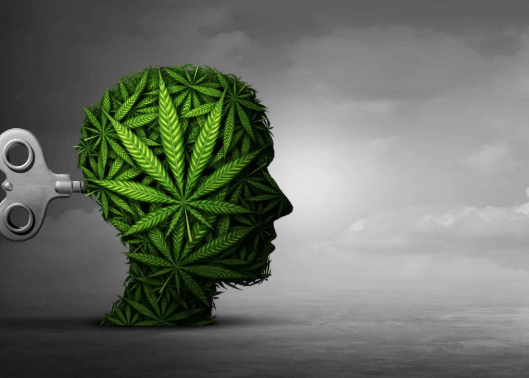The relationship between cannabidiol (CBD) and psychosis is a complex and multifaceted issue that merits careful examination. Despite its classification as non-psychoactive, emerging research raises questions about individual variability in response to CBD, particularly regarding its potential to either alleviate or exacerbate psychotic symptoms. Factors such as dosage, individual susceptibility, and the context of use can significantly influence outcomes. As we explore the existing literature and anecdotal evidence, it becomes increasingly clear that a comprehensive understanding is essential to navigate the potential risks and benefits associated with CBD use. What implications might this have for those considering its use?
Understanding CBD and Its Uses
Cannabidiol (CBD), a non-psychoactive compound derived from the Cannabis sativa plant, has garnered significant attention for its potential therapeutic applications in various medical conditions, including anxiety, epilepsy, and chronic pain.
While many tout CBD benefits, misconceptions persist regarding its efficacy and safety.
Comprehensive research is essential to clarify these misunderstandings and establish a clear understanding of CBD’s role in modern therapeutic practices.
See also: Can You Overdose on Cbd
The Nature of Psychosis
Psychosis is a complex mental health condition characterized by a disconnection from reality, often manifesting through symptoms such as hallucinations and delusions.
The effects of psychosis can significantly impair an individual’s cognitive function and emotional well-being, leading to profound disruptions in daily life and social interactions.
Understanding the clinical presentation and underlying mechanisms of psychosis is essential for evaluating its potential relationship with substances like CBD.
Definition of Psychosis
Often characterized by a disconnection from reality, psychosis encompasses a range of symptoms including hallucinations, delusions, and impaired insight, significantly impacting an individual’s cognitive functioning and emotional regulation.
The psychosis definition includes various psychosis types, such as schizophrenia, schizoaffective disorder, and substance-induced psychotic disorder.
Understanding these distinctions is crucial for effective diagnosis and treatment, ultimately fostering individual autonomy in mental health management.
Symptoms and Effects
A diverse array of symptoms characterizes psychosis, including but not limited to hallucinations, delusions, disorganized thinking, and a marked decline in functioning.
These symptoms can profoundly affect an individual’s perception of reality and overall quality of life.
Understanding these effects is crucial, particularly as emerging research explores potential CBD benefits in enhancing mental health and mitigating psychotic symptoms, offering hope for those affected.
CBD Vs. Thc: Key Differences
Cannabidiol (CBD) and tetrahydrocannabinol (THC) are two prominent cannabinoids found in cannabis, each exhibiting distinct pharmacological properties and effects on the human body.
CBD is celebrated for its therapeutic benefits, including anxiety reduction and anti-inflammatory properties, and enjoys widespread legality in various jurisdictions.
Conversely, THC is primarily associated with psychoactive effects, which can lead to altered mental states and potential psychosis.
Current Research on CBD and Psychosis
Current research on CBD and psychosis focuses on understanding the compound’s underlying mechanisms and its interaction with the endocannabinoid system.
Several studies have examined the potential risk of psychotic episodes associated with CBD, contrasting these findings with its therapeutic benefits in various psychiatric disorders.
This analysis is crucial for delineating the adverse effects of CBD from its potential as a treatment modality in mental health.
Understanding CBD’s Mechanism
Research indicates that the mechanism by which CBD interacts with the endocannabinoid system may play a critical role in its potential effects on psychosis, warranting further investigation into its neuropharmacological pathways.
Specifically, CBD metabolism and receptor interaction highlight its complex influence on neurotransmitter systems, which could mediate psychotic symptoms.
Continued exploration in this area is essential for understanding therapeutic applications and safety profiles.
Studies on Psychosis Risk
Emerging evidence from clinical studies suggests a nuanced relationship between CBD and the risk of psychosis, highlighting the necessity for a thorough examination of dosage, individual susceptibility, and the context of CBD use.
Research indicates that while CBD may interact with psychosis prevalence, its therapeutic properties could mitigate psychotic symptoms in some individuals, warranting further exploration of these complex CBD interactions.
Therapeutic Vs. Adverse Effects
The dual nature of CBD’s effects presents a complex interplay between its potential therapeutic benefits for psychotic symptoms and the risk of adverse outcomes, necessitating a careful evaluation of individual patient profiles and usage contexts.
Current research indicates that while CBD may mitigate some psychotic symptoms, adverse reactions can occur. This highlights the importance of personalized approaches to treatment and ongoing monitoring in clinical settings.
Individual Risk Factors for Psychosis
Several individual risk factors, including genetic predisposition, pre-existing mental health conditions, and environmental influences, can heighten the likelihood of experiencing psychosis in response to cannabinoids such as CBD.
Research indicates that individuals with a family history of psychotic disorders may be particularly susceptible.
Additionally, environmental triggers, such as stress or substance abuse, can exacerbate these risks, underscoring the need for personalized assessments in clinical settings.
Anecdotal Evidence and Case Studies
Numerous anecdotal reports and case studies have surfaced, suggesting a complex relationship between CBD consumption and the onset of psychotic symptoms in certain individuals.
Personal experiences documented in community testimonials reveal diverse outcomes, with some users reporting heightened anxiety or paranoia.
These accounts warrant further investigation, as they highlight the need to understand individual variability in responses to CBD and its psychological effects.
The Role of Dosage and Purity
Individual variability in responses to CBD may be influenced significantly by factors such as dosage and the purity of the product consumed. Both of these factors play critical roles in determining the likelihood of experiencing adverse psychological effects.
Adhering to established dosage guidelines and ensuring compliance with rigorous purity standards can mitigate risks. This approach allows users to navigate the complexities of CBD consumption with greater safety and confidence.
Expert Opinions on CBD Safety
Experts in the field of cannabinoid research emphasize the importance of conducting rigorous studies to assess the safety profile of CBD, particularly in relation to its potential psychological effects.
Current CBD regulations often lag behind public perception, which can lead to misconceptions about its safety.
A comprehensive understanding of CBD’s effects is essential for informed decision-making and ensuring consumer protection within this evolving landscape.
Recommendations for Safe Use
Understanding the potential psychological effects of CBD underscores the necessity for clear recommendations on its safe use to mitigate any associated risks.
Safe consumption practices include adhering to established dosage guidelines, starting with lower doses, and monitoring individual responses.
Regular consultations with healthcare professionals can further enhance safety, ensuring that users navigate potential effects responsibly while maintaining their autonomy in therapeutic choices.
Conclusion
In summation, the relationship between CBD and psychosis remains complex, akin to navigating a labyrinth where each turn presents unique challenges.
While some evidence suggests that CBD may alleviate psychotic symptoms for certain individuals, the potential for adverse reactions underscores the importance of considering individual risk factors and dosage.
Ongoing research is essential to unravel the intricacies of CBD’s effects, ensuring informed decision-making for those exploring its therapeutic potential amidst the shadows of psychosis.





